Joshiraku 12 – notes and the like This entry was posted by Vale.
On to episode 12.
This is a really bad pun on the word 門松 (kadomatsu), which is a traditional Japanese New Year’s decoration, shown on the screenshot above. The joke is centered around that while kadomatsu is written with the characters “gate” and “pine”, kado could be “corner” (角) and matsu could be “to wait” (待つ).
She uses the word 天丼 (tendon), which means a “joke” in a comedy that’s (only) funny because someone keeps repeating it over and over again. Not to be mistaken with the tenpura donburi (天ぷら丼), also commonly abbreviated as tendon. As for Marii’s comment, I don’t even want to imagine what Teto could order on the net for Valentine’s.
The first part’s title is 夢見の仇討ち(yumemi no adauchi), a reference to the rakugo story 花見の仇討ち (hanami no adauchi, vengeance at the flower-watching). It’s about a group of youth who get bored from just watching the flowers every day, so they decide to put on a blood revenge play. But then a samurai passing by thinks it’s serious… You can guess the rest. The translation is a reference to Star Wars V.
Actually counting sheep isn’t English only, and it has nothing to do with the pronunciation of the words. It’s just used to induce enough boredom by its monotonity to make you fall asleep.
Focus on what’s going on outside the window, and this whole scene gets about four times as funny.
She literally says that, I’m not kidding.
Refer to a certain cult movie. The “flash sleep” she mentions later seems to be a real thing, though I couldn’t find any reliable sources about it.
What she says conveniently fits the lyrics of a certain very famous song.
Don’t forget your spinning top.
According to Japanese folk belief, the first dream you see on 1st January foretells your future for that year. No one really knows for sure why these things are considered auspicious though. The sixth, the blind masseur is thought to be lucky because he’s bald (毛がない ke ga nai), so you won’t be hurt (怪我ない kega nai).
This whole scene (music included) is a shoutout to Space Sheriff Gavan (also known as Space Cop Gavin). Cesium, strontium and plutonium are all radioactive (or have common radioactive isotopes). The radioactive part was cut out in the CBC and the BS-TBS broadcast.
This episode they visit Roppongi. The Almond’s a real store there. Most of the places they visit (Roppongi Hills, 66 Plaza etc) and the stuff they say are real as well.
The Japanese title こぁいのう (koainou) is a reference to the rakugo story きゃいのう (kyainou). It’s about a kabuki actor setting himself on fire accidentally right before his act.
You don’t know Hachiko? Read up.
It’s probably “Feed me!” instead. Somewhere I read a claim that it’s saying “Hitomi” but that might be just the Japanese not understanding it.
The numbers on this wall are changing randomly at different speeds. All showing 4 at the same time is quite improbable, but not impossible.
This was covered in episode six.
The astronaut’s name is Mukai Chiaki. My bad.
Tokyo Midtown is in Roppongi as well. The Midtown West is the Fujifilm headquarters, while Midtown East is Konami’s. By the way, I checked how much an apartment’s rent is in the Hills Residences, and found that it’s (up to) roughly 30 times what I pay for my flat.
The velfarre was the (self-proclaimed) “largest disco in Asia”. It was closed and then renamed to nicofarre when the Nico Nico Douga company took over.
The video is the first episode’s opening in the niconico broadcast (still using the old player). The comments flowing are quite realistic too, with references to an adult video among others. The names on the flags on the sides are:
- 窃個苦亭 舞落久 (sekokutei buraku): pun on セコくてブラック, “petty lowlife” (lit. “petty black”)
- 猛禽亭 火世呼 (moukintei hiyoko): moukin is “bird of prey” and hiyoko means “chick”
“… if you were in your twenties back then.” The editor misinterpreted this. The Japanese economic bubble‘s already burst 20 years ago.
A reference to two movies. One is the “Take me skiing!” (私をスキーに連れてって) from ’87 (by Hoichoi Productions), a representative piece from the bubble age and the other is “To the bubble!” (バブルへGO!!) from 2007.
My mistake. Not Suehiro (the girls’ theater), but Hirosue Ryouko, the star of the aforementioned Take me skiing! movie.
The B2 Supperclub (sic) earlier is a reference to the R2 Supperclub (sic). The song Marii’s singing is a twist of the traditional song of the Awa Dance festival held in Tokushima (where Marii’s said to be from).
A reference to Takebuji (武富士) (bankrupt in 2010), which was famous for its dancer CMs during the ’90s and the early 2000s.
She’s riding a 1959 Cadillac Eldorado Biarritz. In the next scene the “Pink Don'” refers to the Don Perignon rosé wine. The Akasaka Prince Hotel (more recently known as the Grand Prince Hotel Akasaka) was closed in 2011 because of the building’s condition (it’s considered a cultural heritage though).
Real writer, real book, real quote.
Again a series of Ebizou references for you. (By the way, the shop where the “ashtray tequila” incident happened is closed now. Though before they served tequila in ashtrays as a welcome drink…) The black car there is a Porsche 911. There was a red Ferrari F40 too.
The red thing around Teto is Squirmles (in Japan known as モーラー mora), a toy sold since ’75.
Cool Biz is a real government initiative. Marii’s rakugo is a horrible pun on the words “ninja” and “how many people?” (何人じゃ? nannin ja?).
The Japanese title is 青毛 (aoge), the word used for black horses. It’s a reference to 青菜 (aona, “greens”), a rakugo story about a lord treating his gardener to a meal, and using smart language (homophones, puns) to talk with his wife. The gardener of course doesn’t get it, but when the lord explains it to him, he tries to imitate them (and needless to say, fails).
Kigu’s line earlier (the quite all right one) is a reference to a ninja movie (仮面の忍者 赤影 kamen no ninja Akakage). Shinbashi was mentioned in episode three too.
Japanese are hilariously scared of nuclear energy since the Fukushima accident last year. That guy’s wearing anti-radiation gear (the sound is a Geiger-counter as well).
Lovecraft’s famous Cthulhu Mythos. Noda Yoshihiko current Japanese prime minister (hated a lot for (to name a few) taking part in the TPP negotiations, starting the process of raising the consumption tax, restarting the nuclear power plants, introducing the Osprey). The building of the Japanese Diet.
The posters say “clockwise”, “gravestone bargain” and “turn back now if you hold your life dear”. Probably a reference to the Edo dungeon in Ziria. The common belief is that you must turn clockwise in haunted places or you’ll get cursed.
Intentionally phrased to resemble Poe’s Raven.
They’re talking about Korean pop.
“Glasses of the dragonfly” (とんぼのめがね tonbo no megane) is a Japanese children’s song.
Doraemon. Kigu’s Nobita. Osprey are the helicopter-planes famous (and much feared by the Japanese) for their accidents.
The Blue Man performance group. If you haven’t been to any of their shows yet, go now. It’s worth it.
- Konata from Lucky Star (2004)
- Ayanami from Evangelion (1995)
- Lord Aoshi from Rurouni Kenshin (1994)
- Soldier Blue from Toward the Terra (1977) (anime remake 2007)
I put the years the franchises started there. Now you get Teto’s comment.
Touch was the highest-rated anime series ever.
Regarding him, refer to the episode three notes. He graduated the law department of the Meiji University. I couldn’t find any details about his wife.
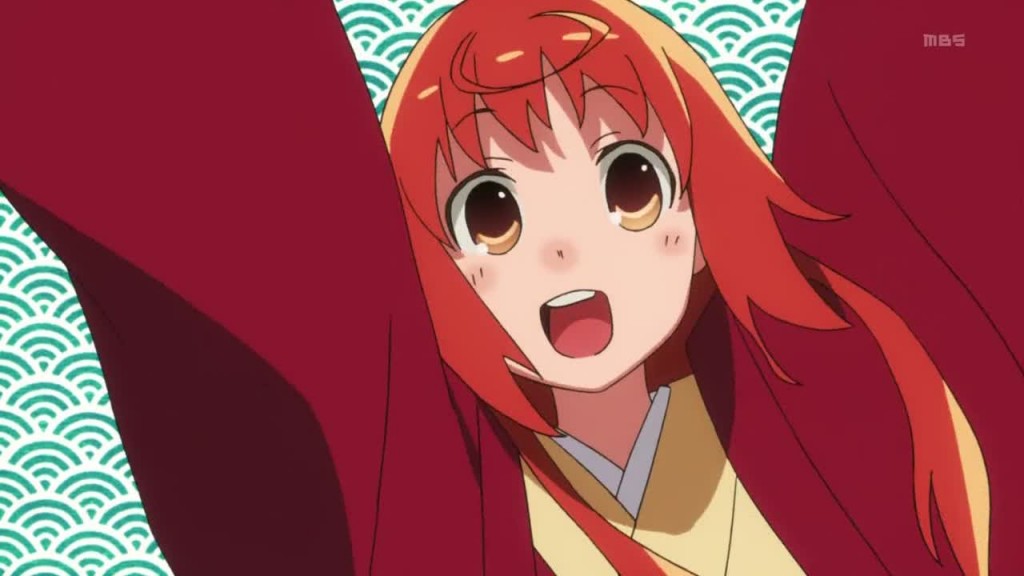
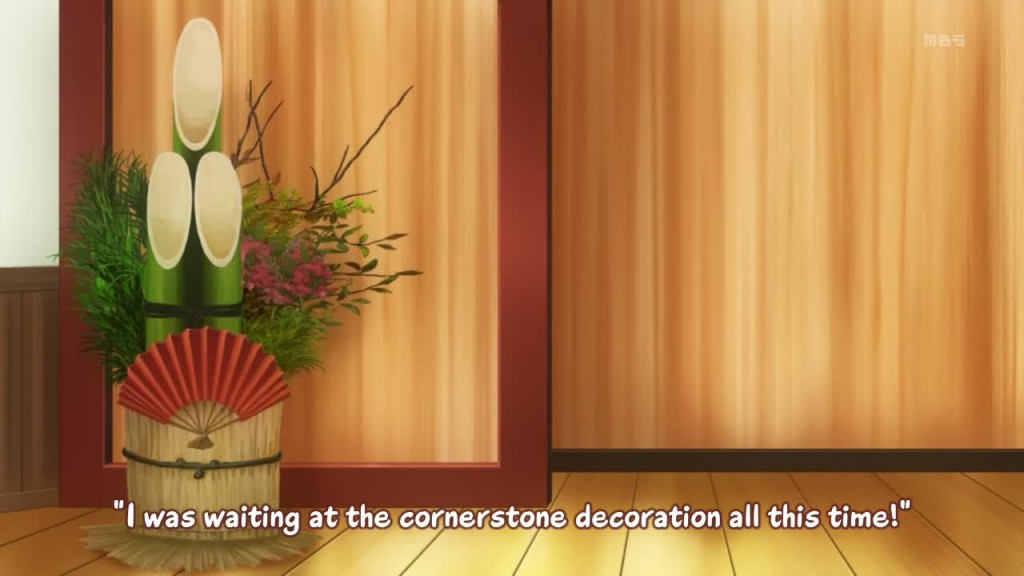
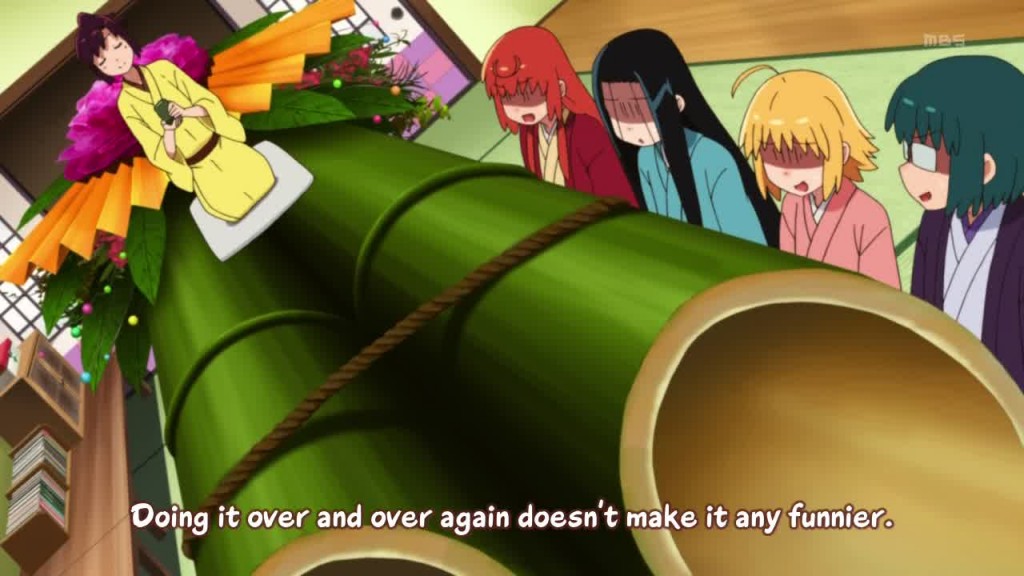
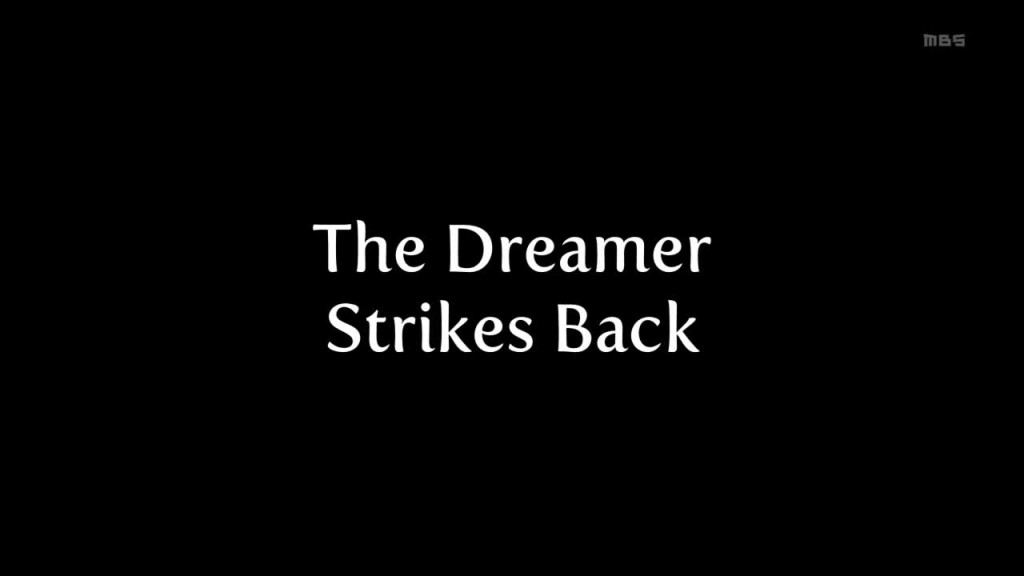
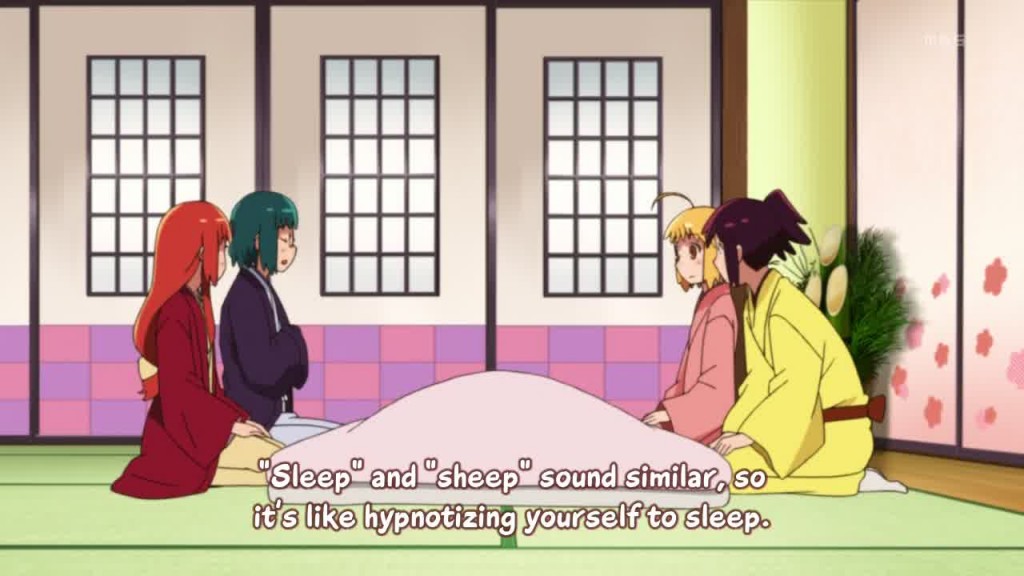
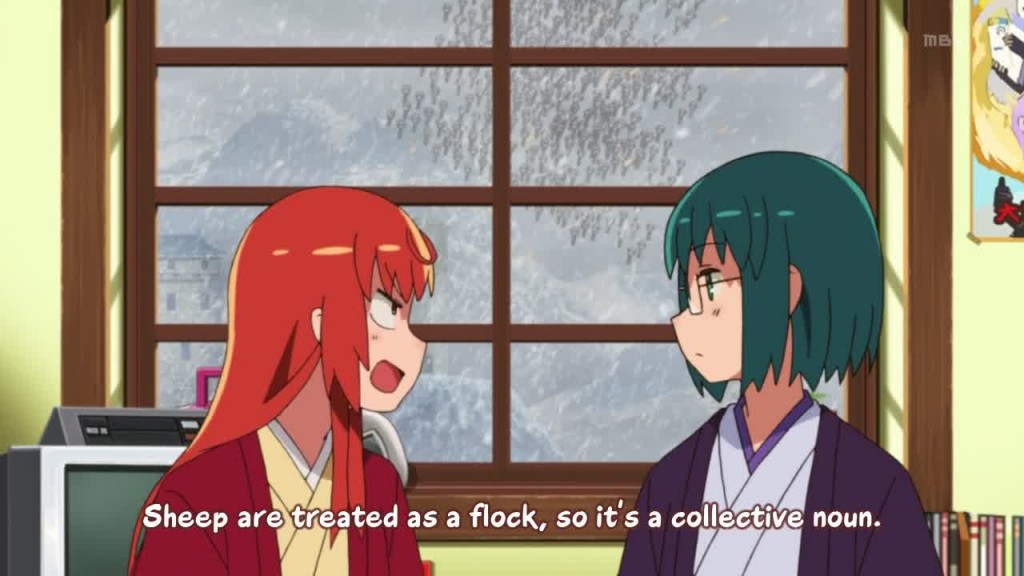
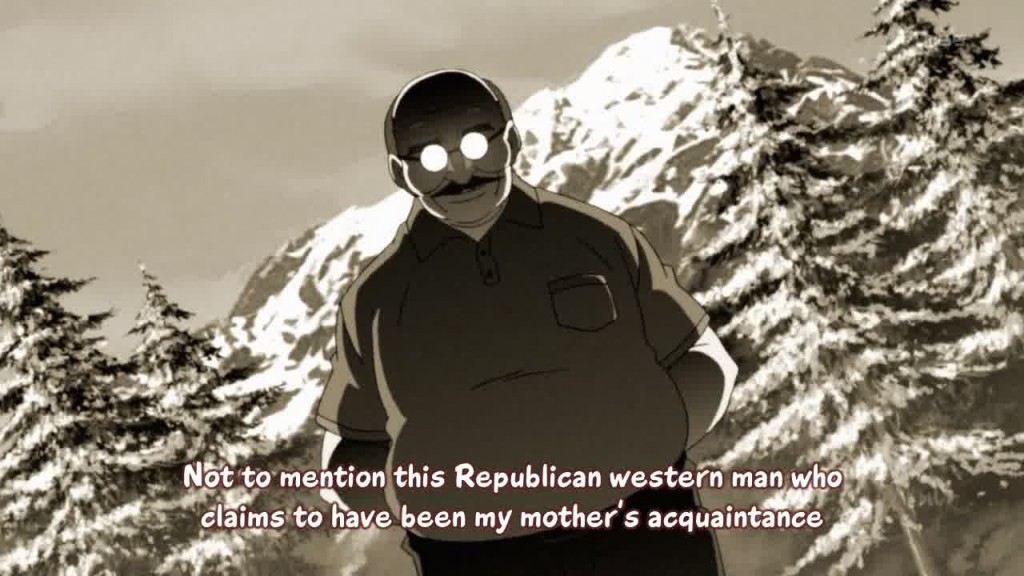
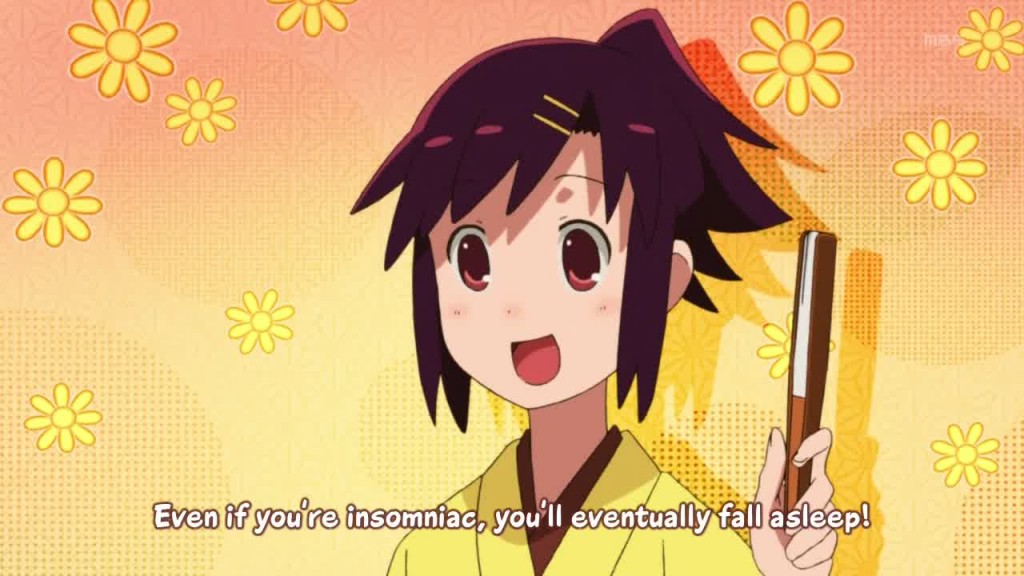
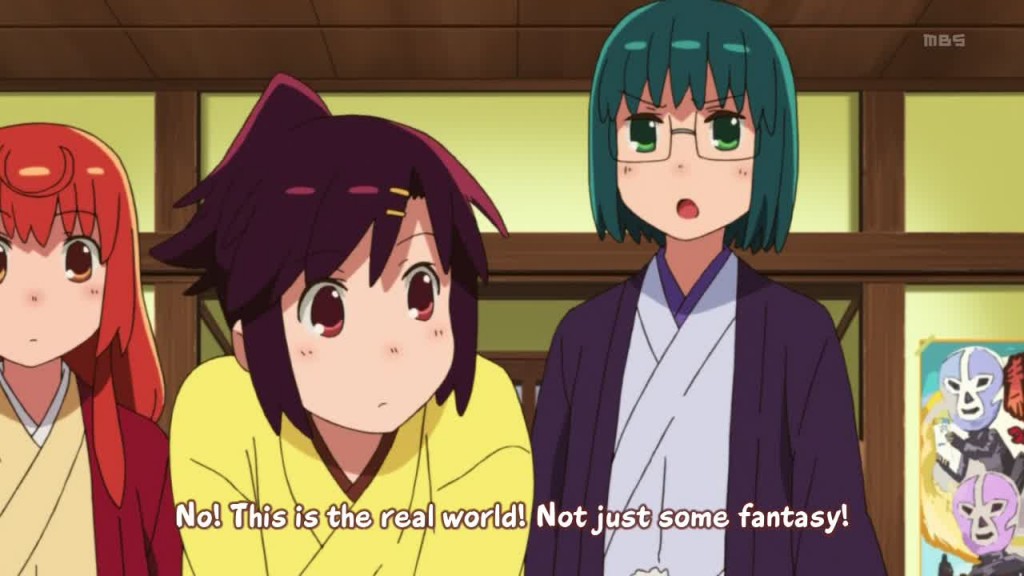
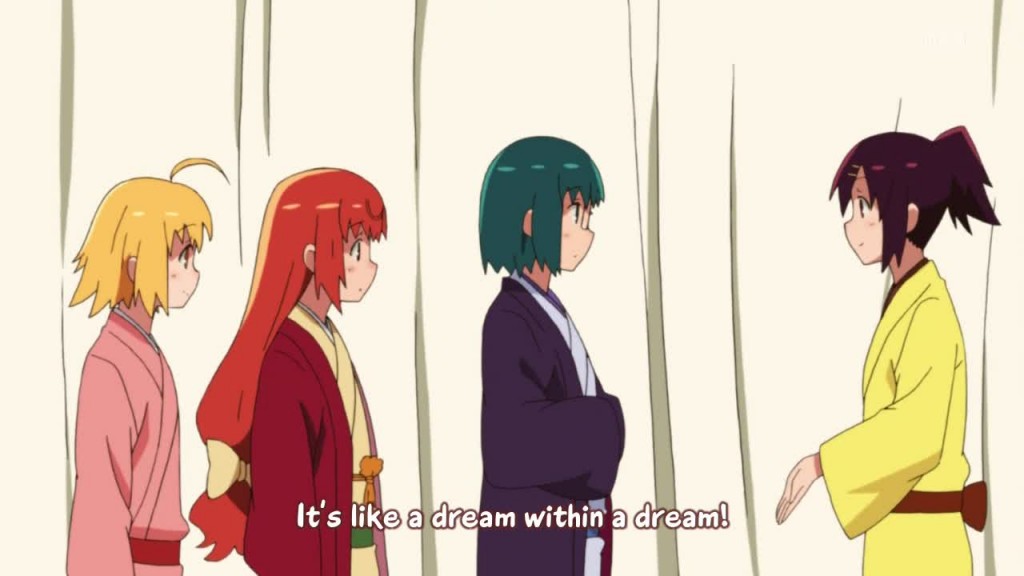
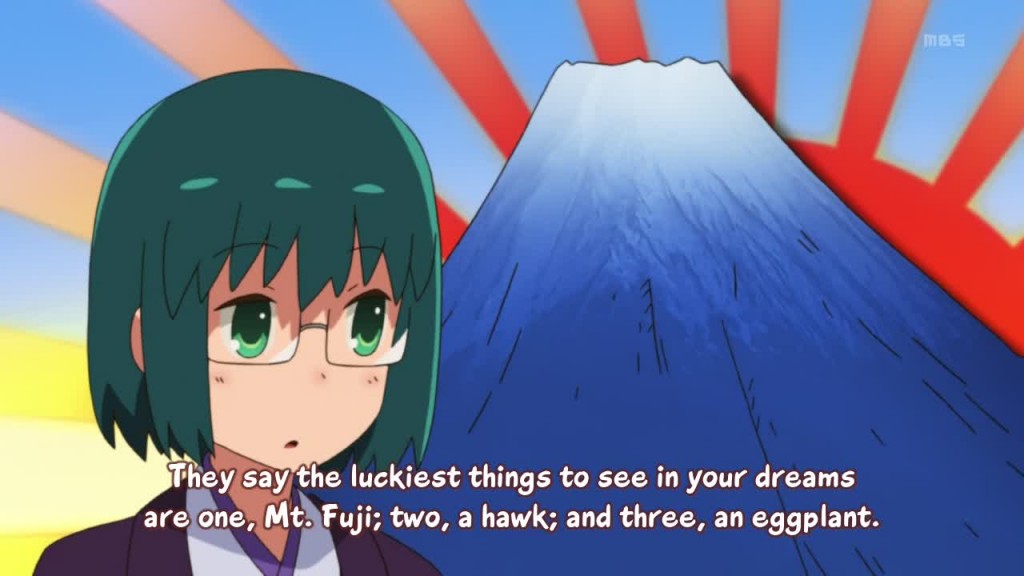
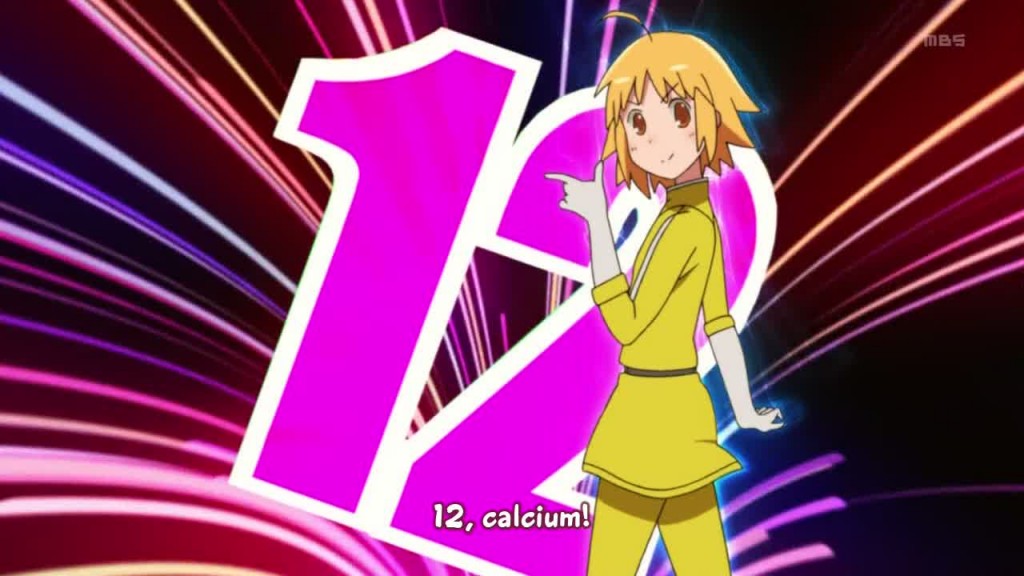
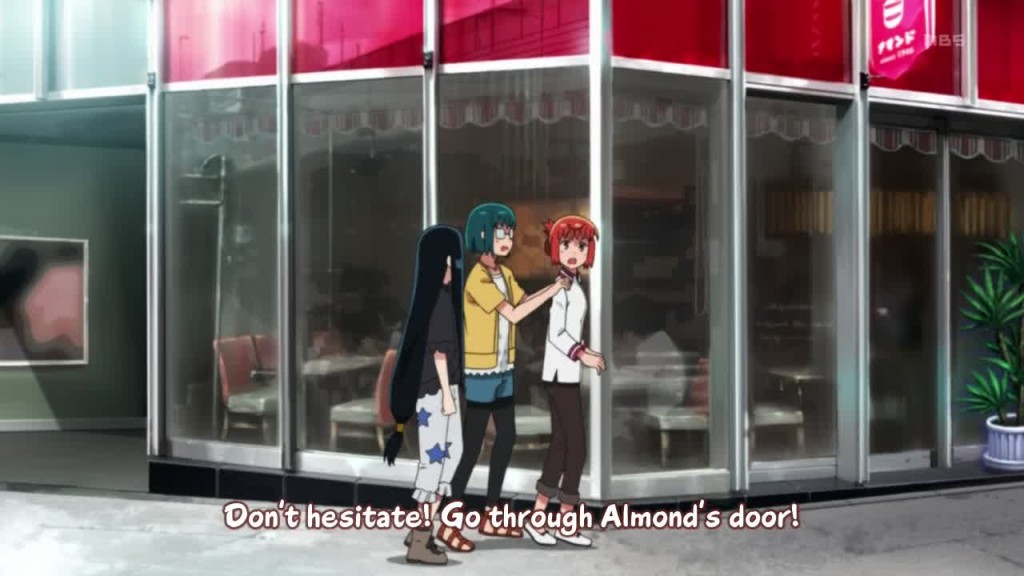
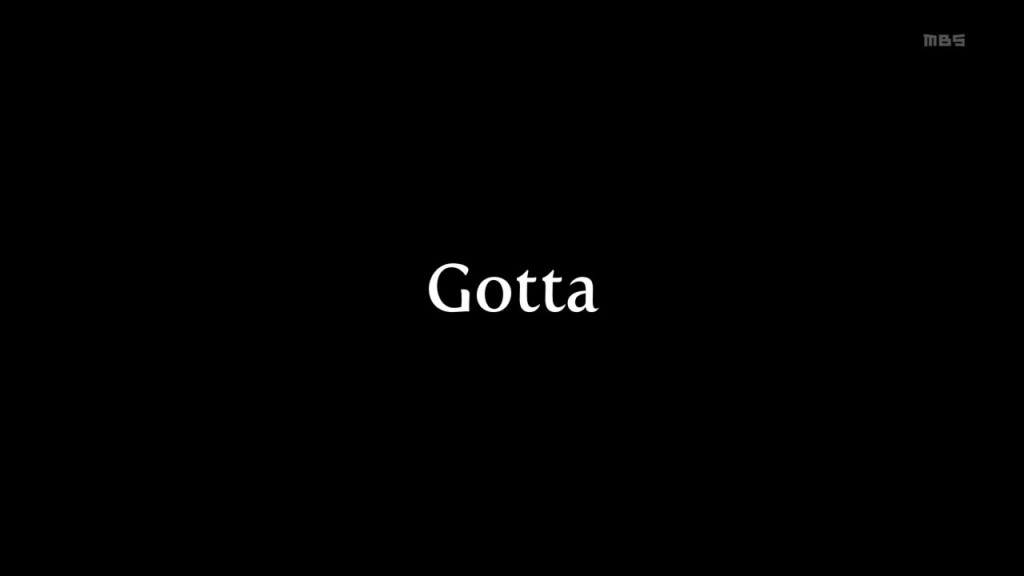
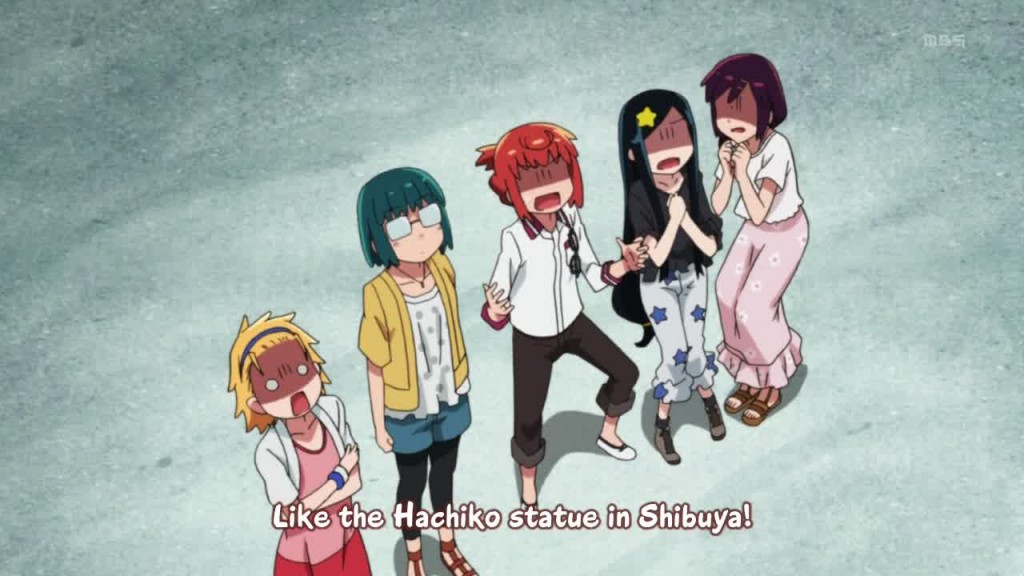
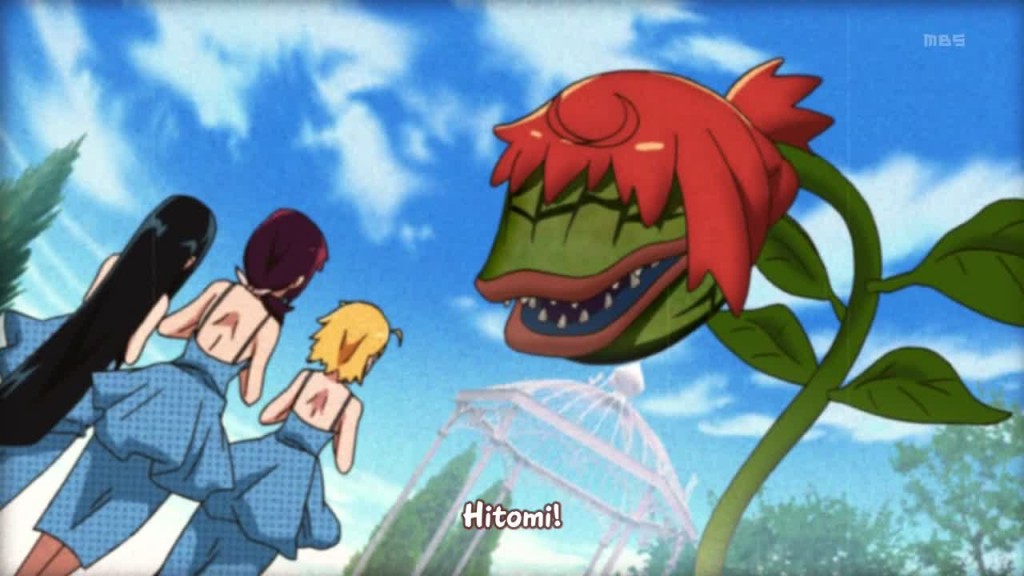
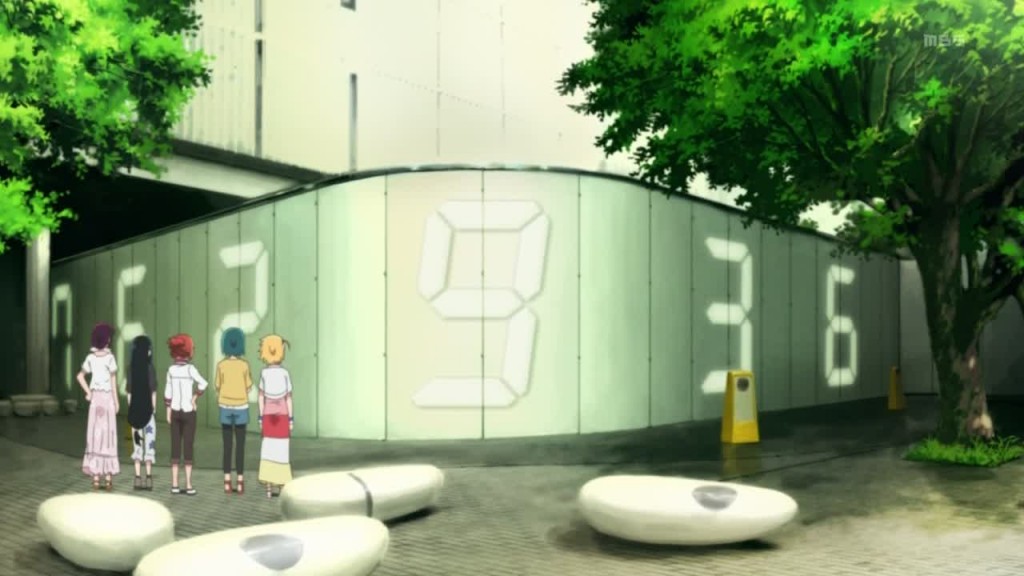
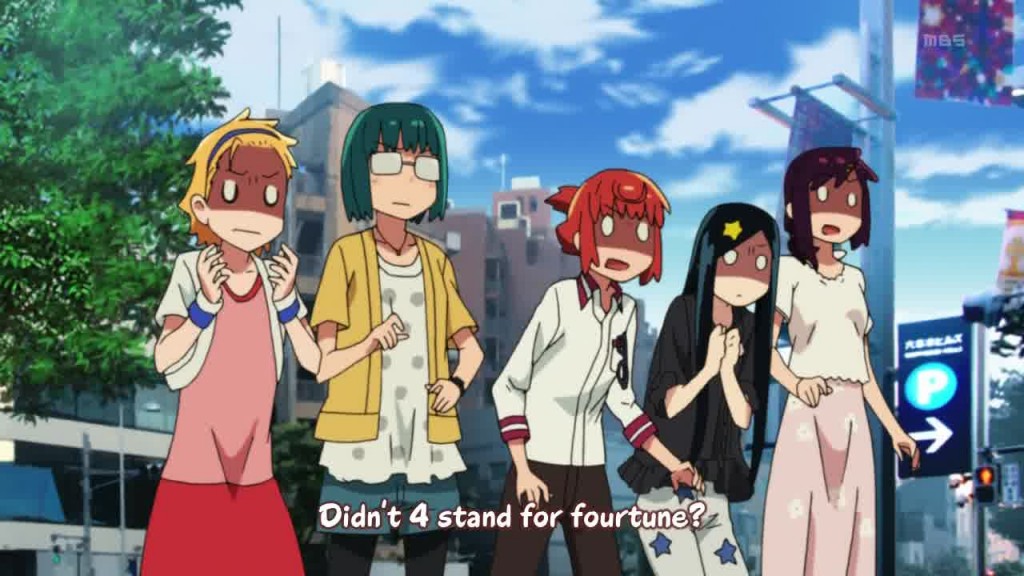
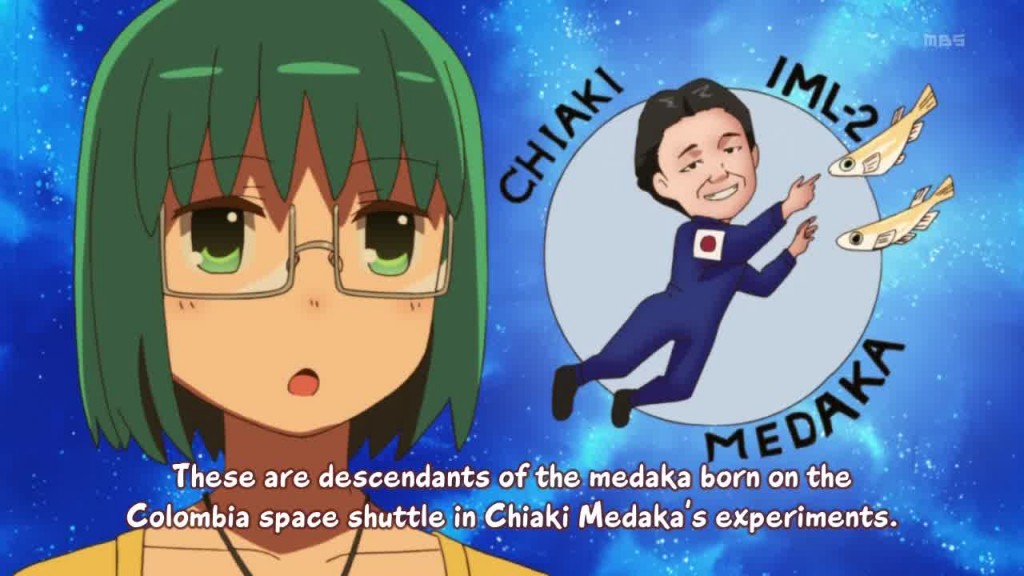
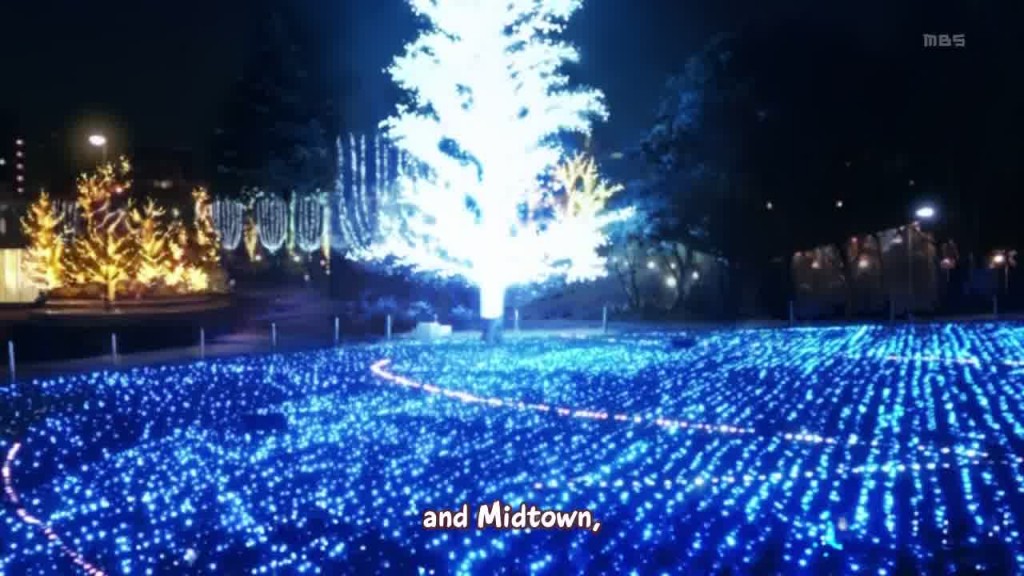
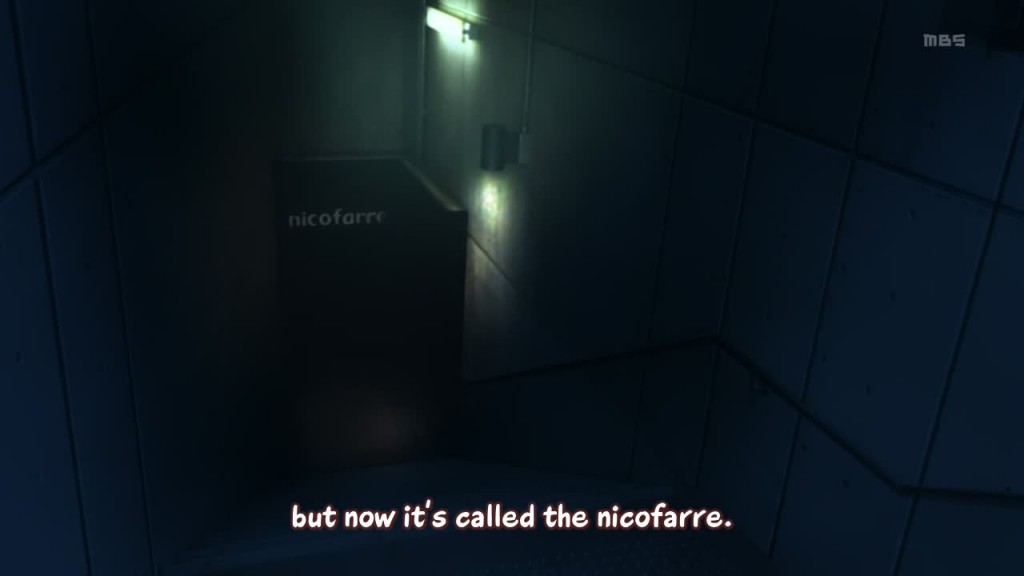
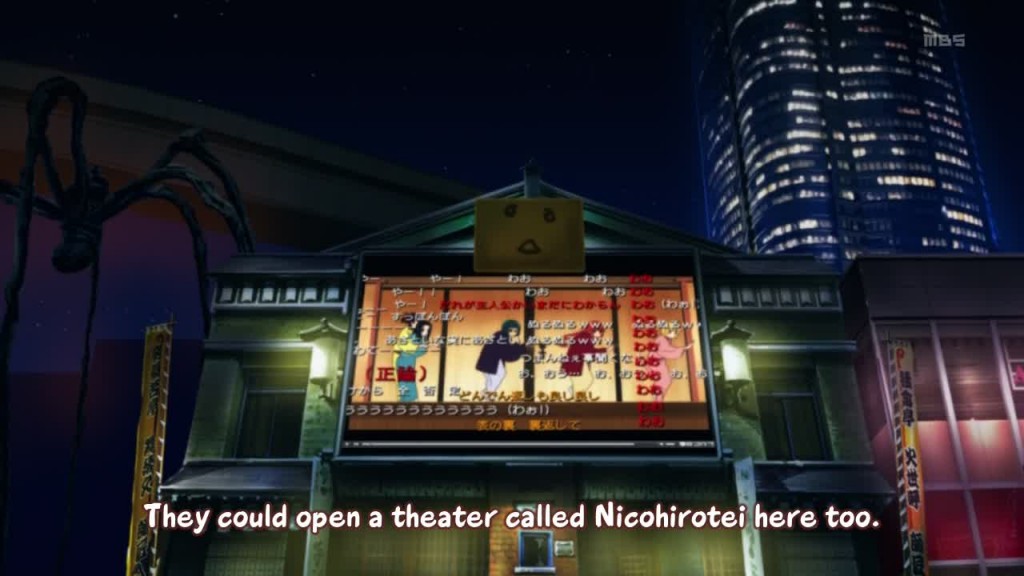
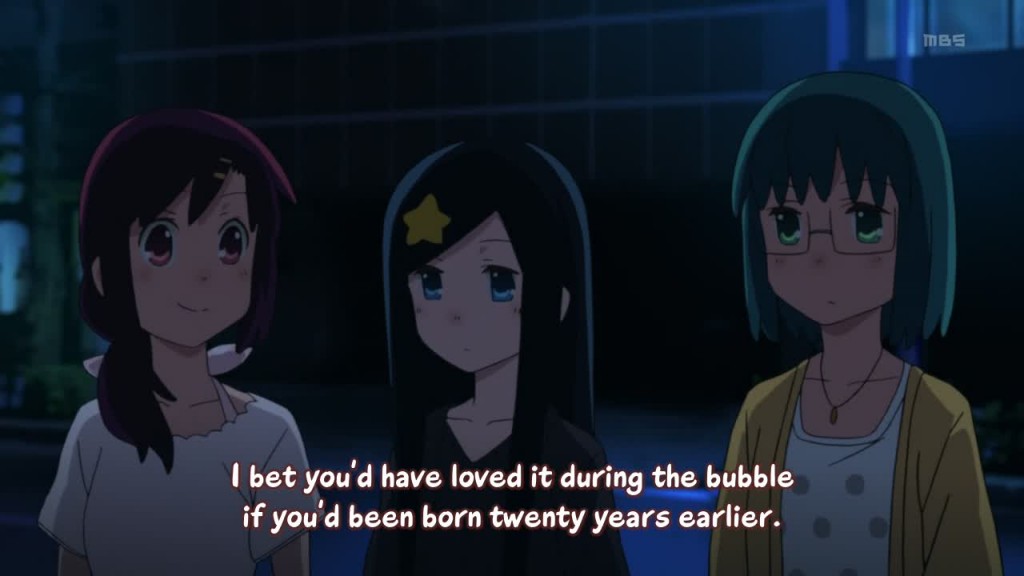
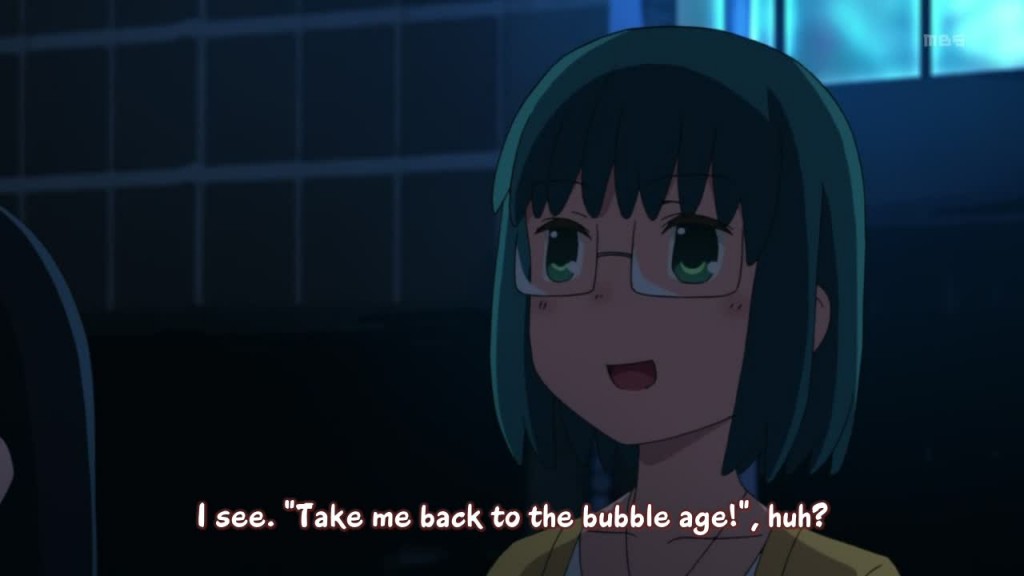
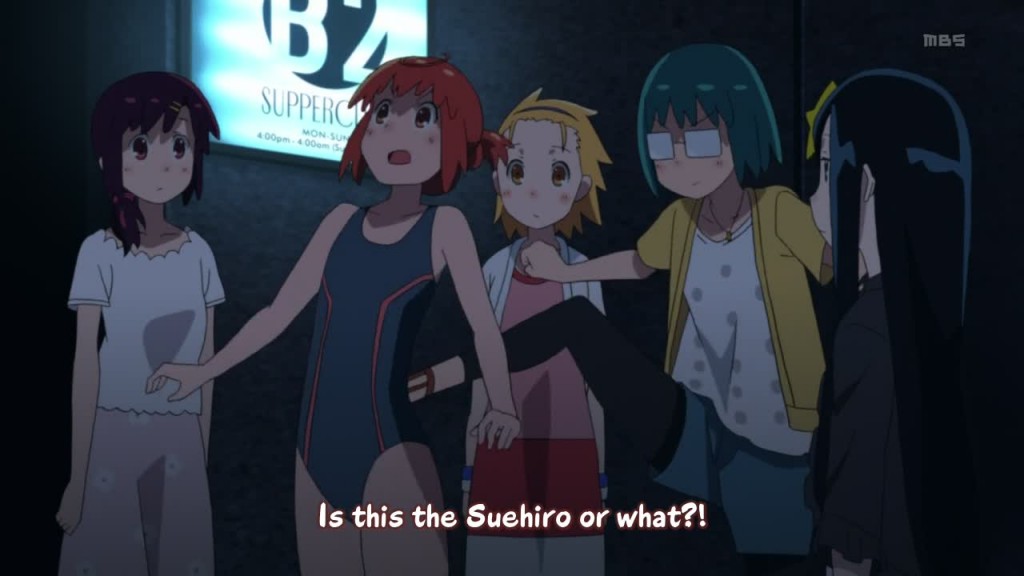
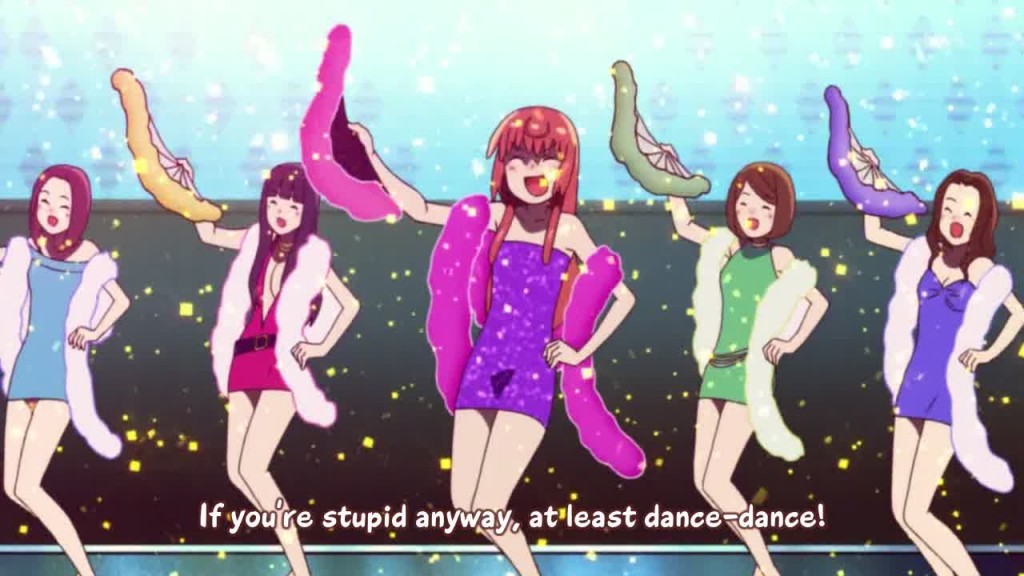
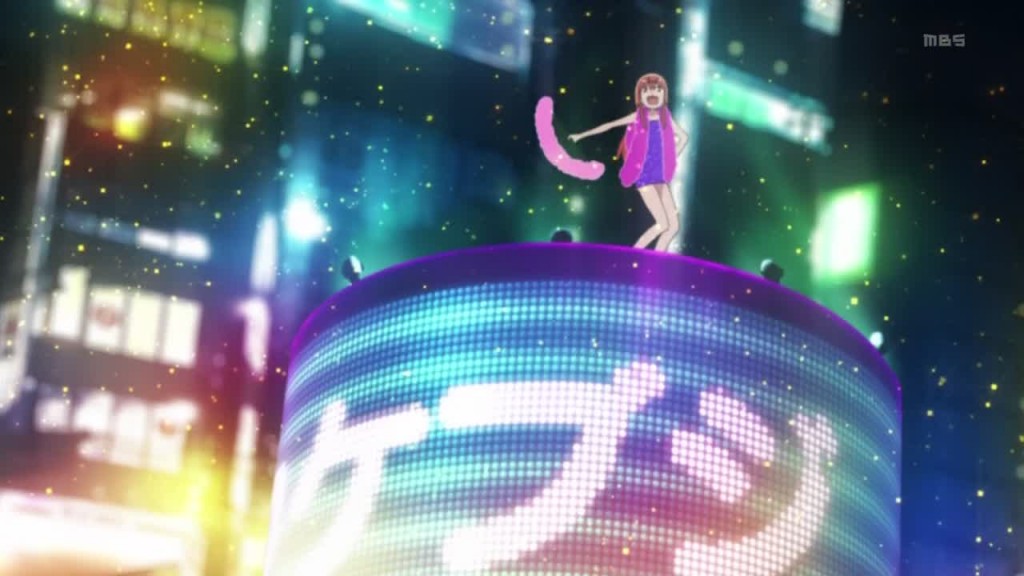
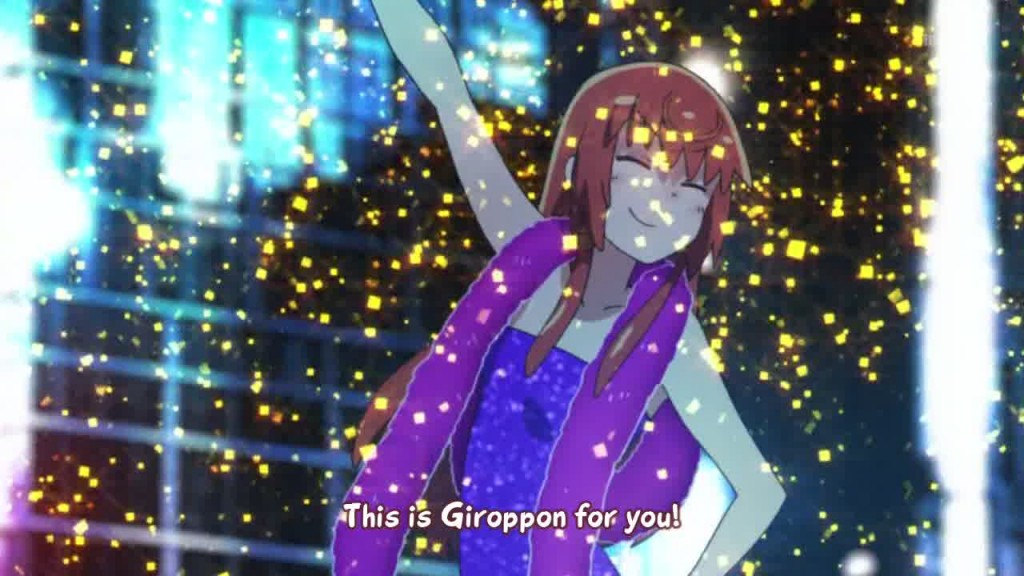
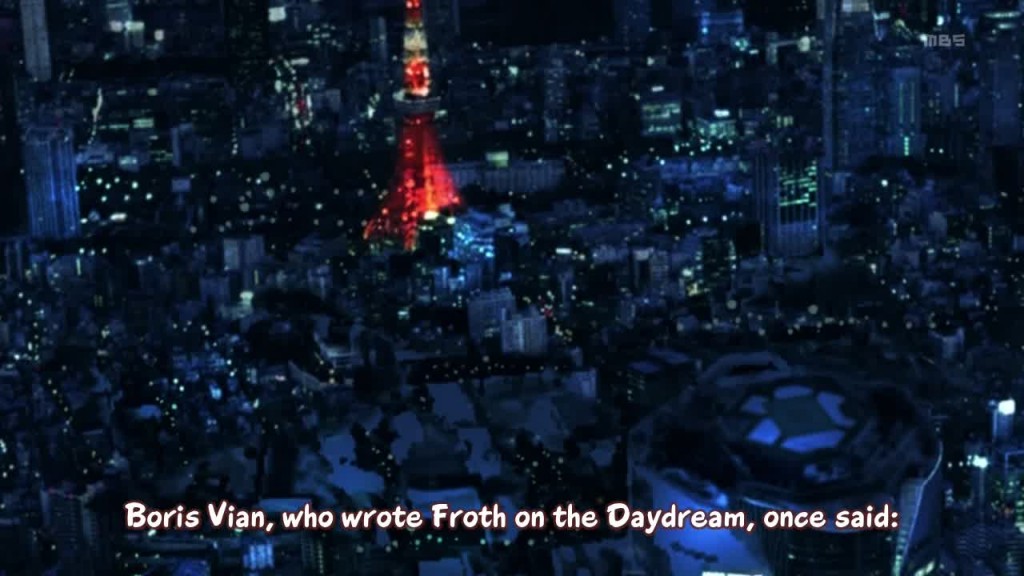
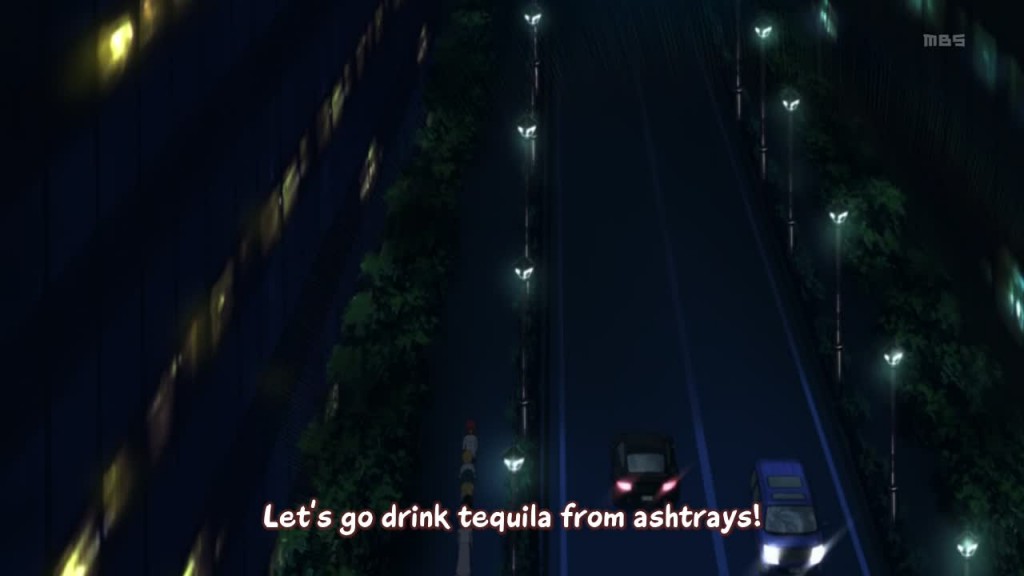
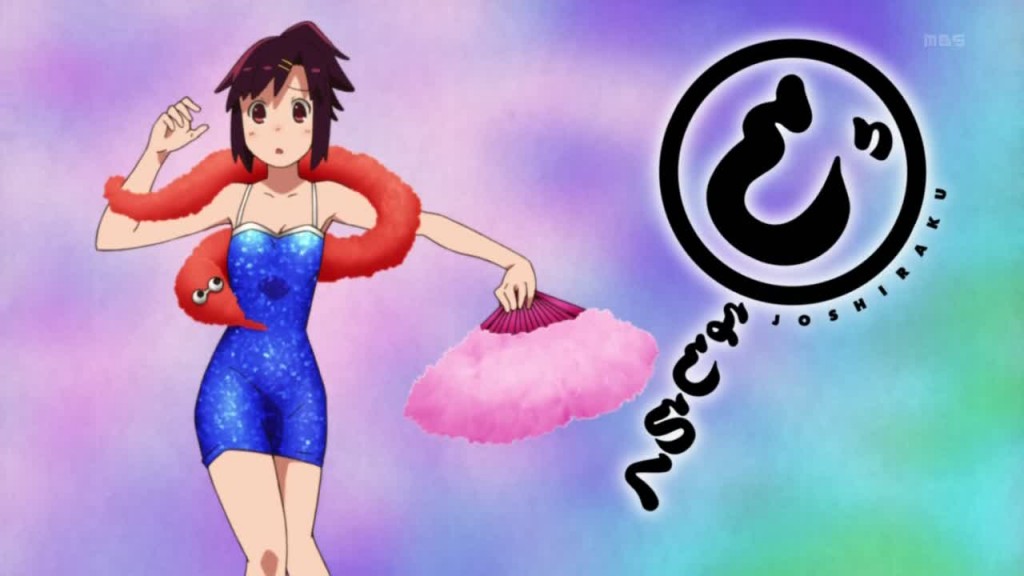
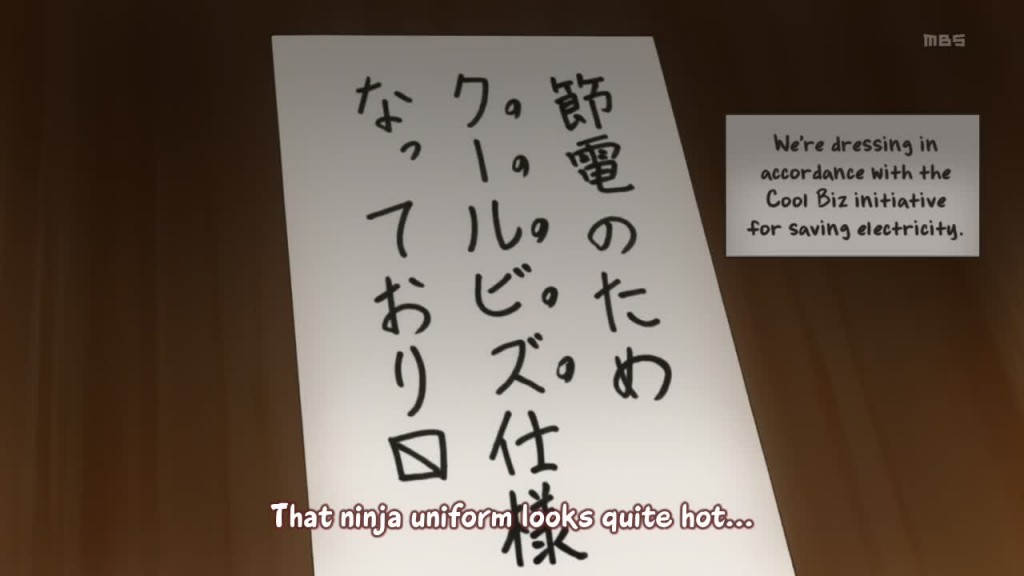
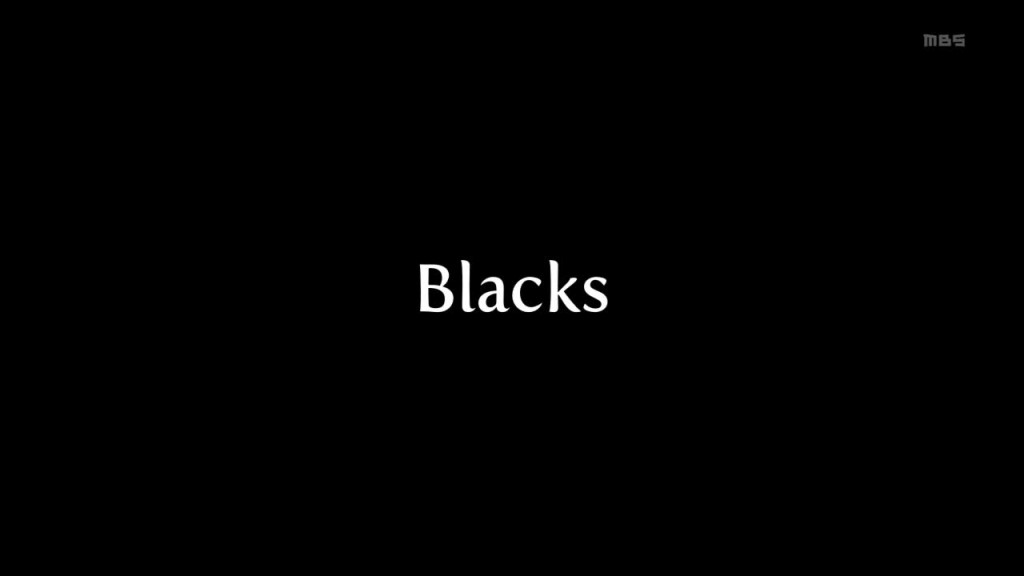
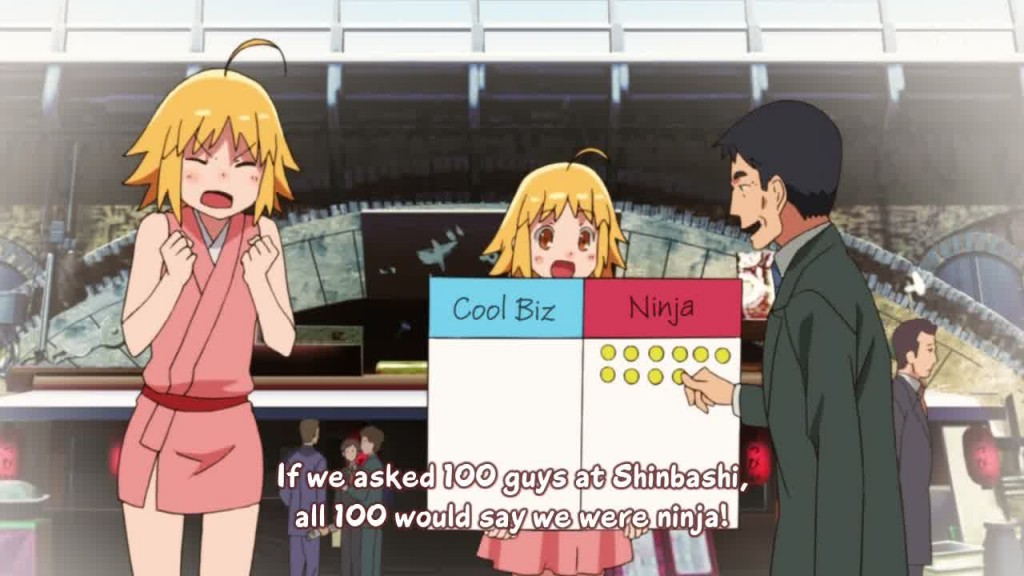
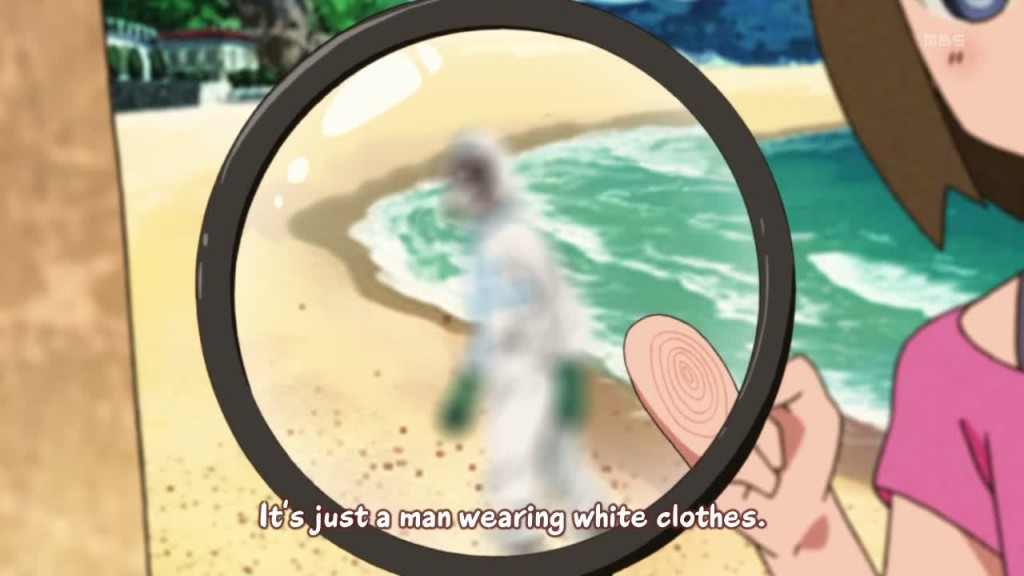
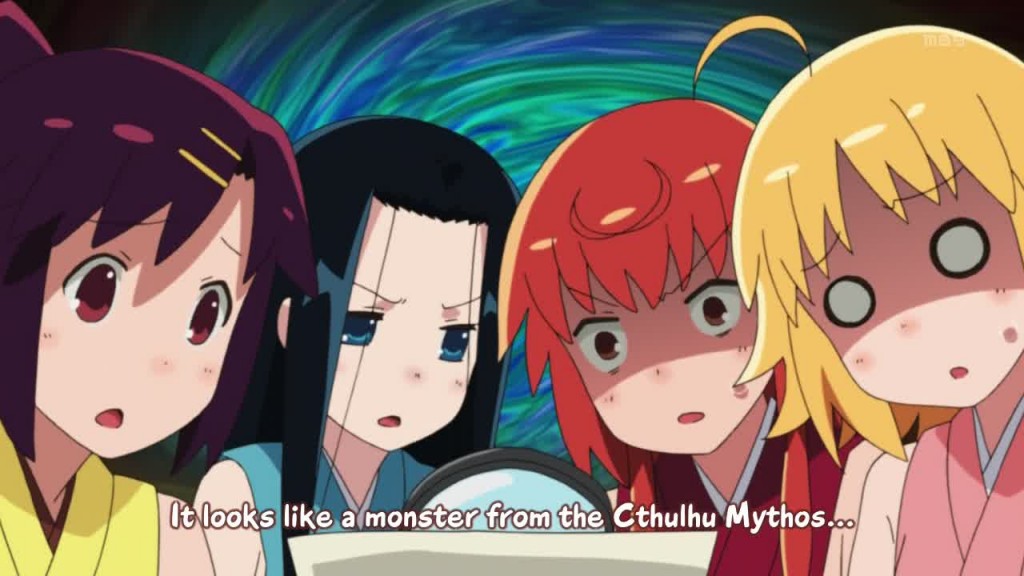
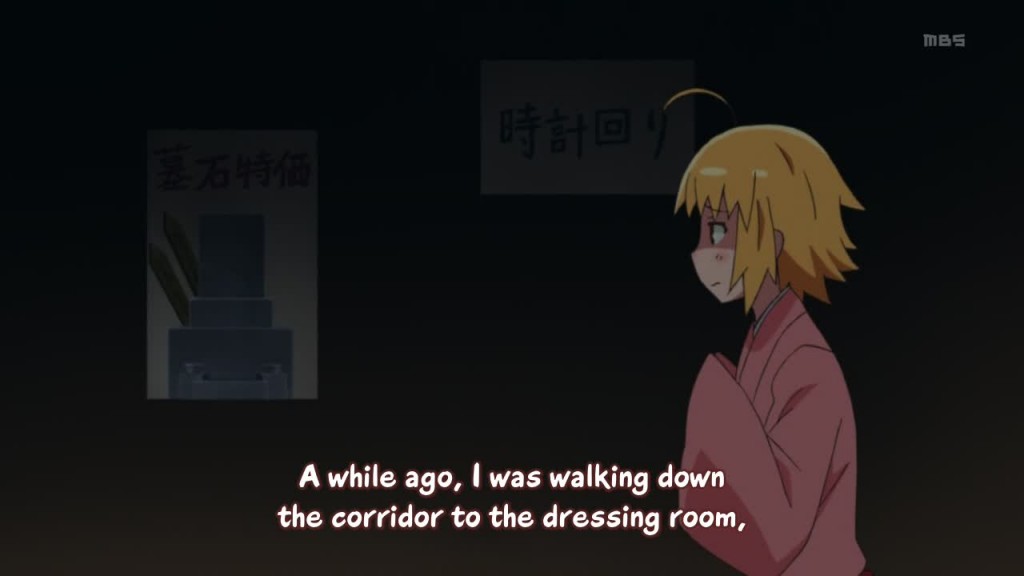
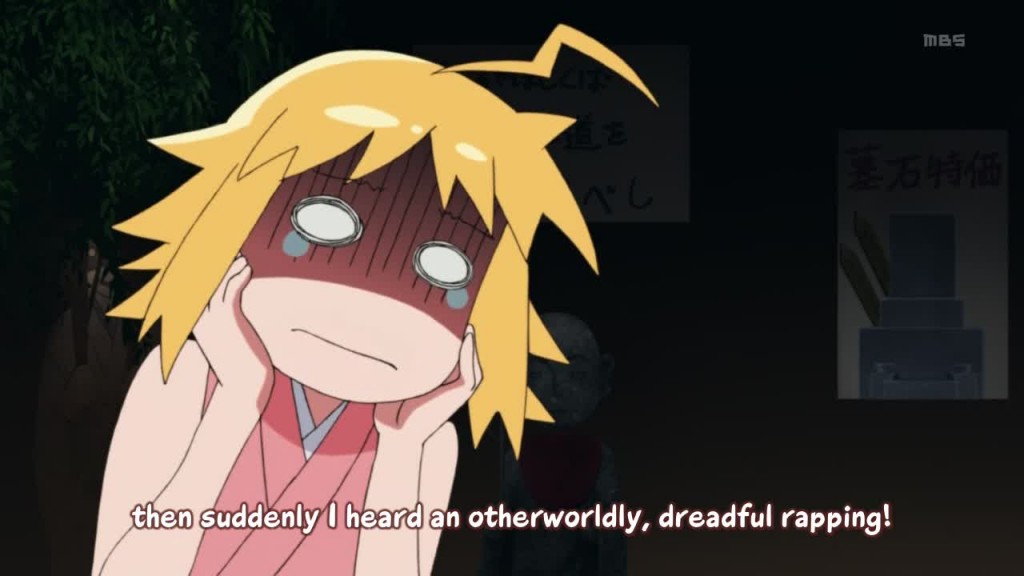
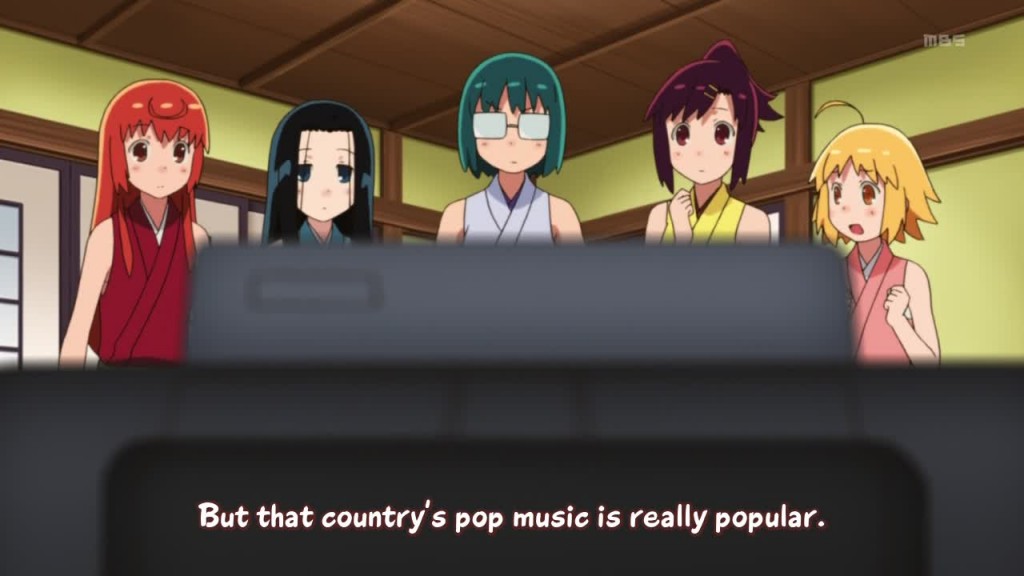
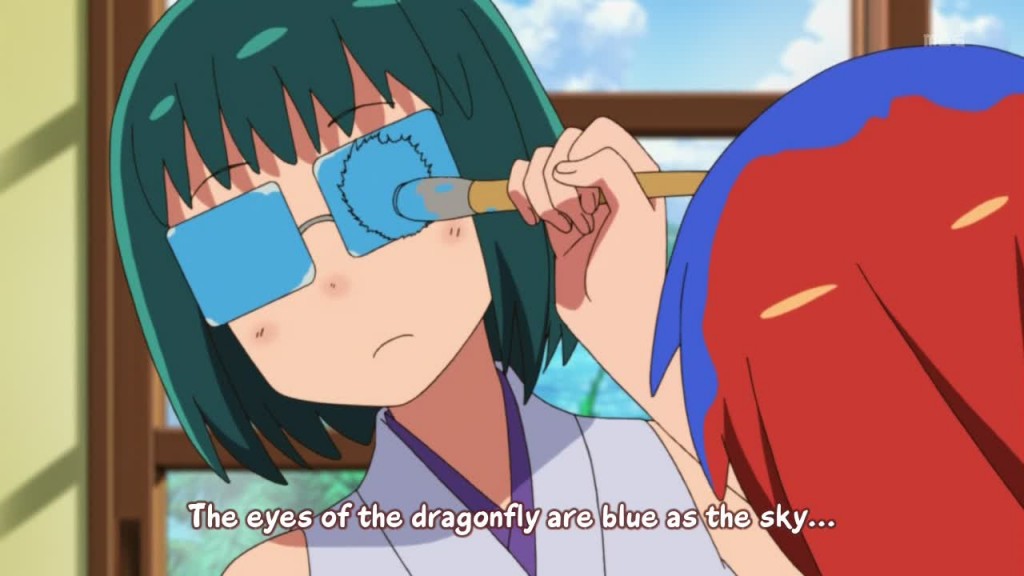
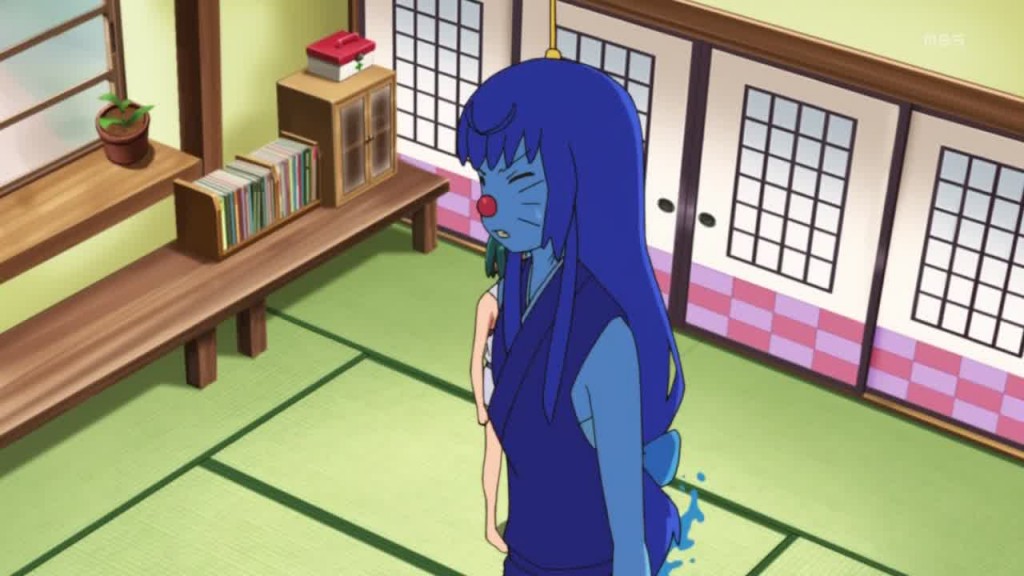
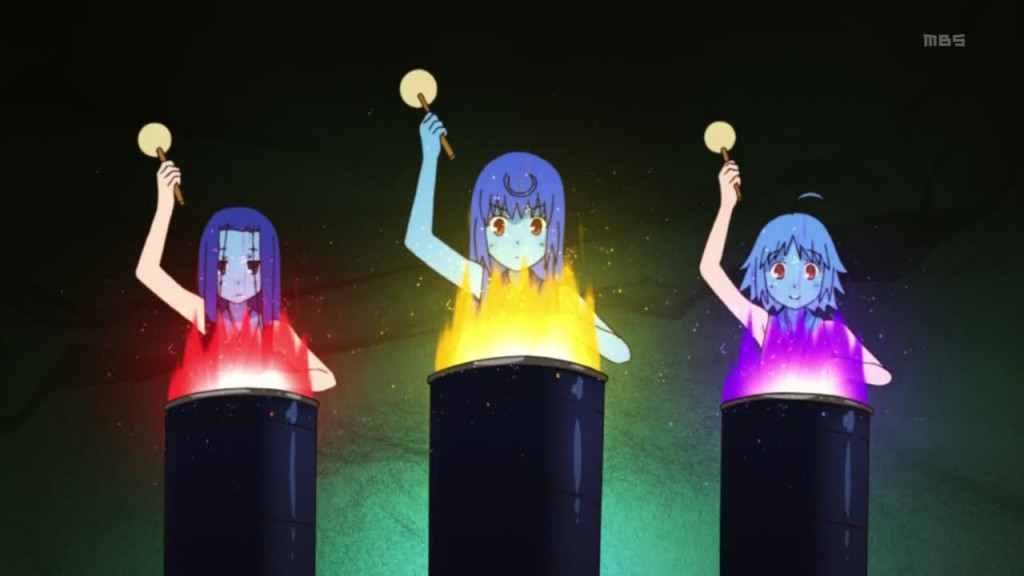
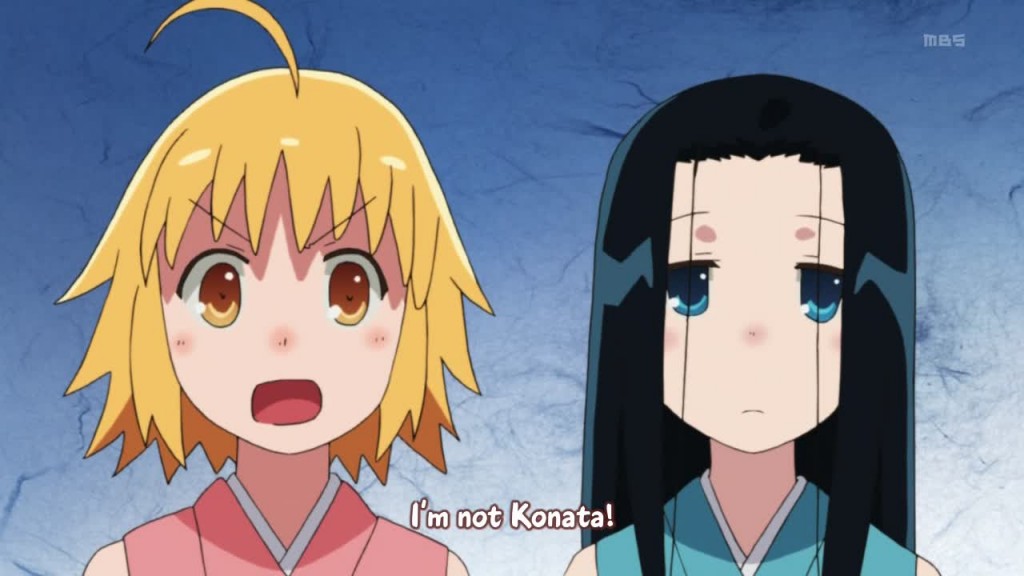
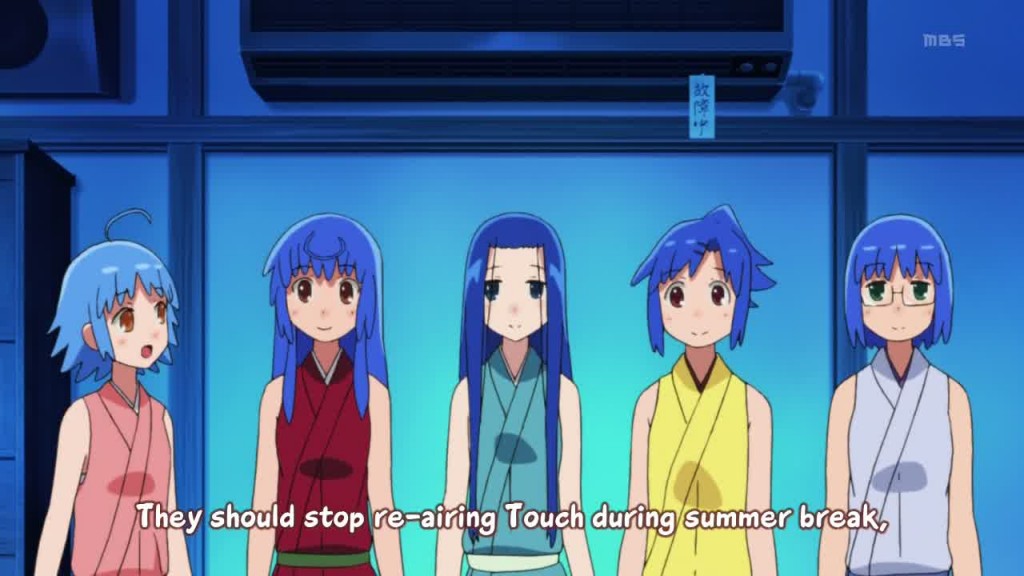
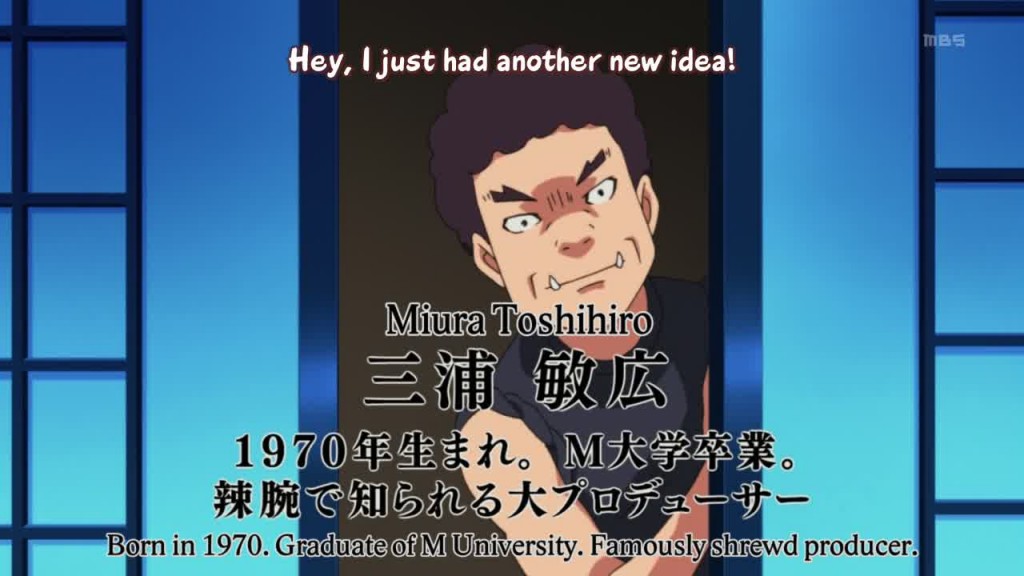
Hard to believe they still censor information relating to Fukashima.
So you pay about $300 for your flat, that’s pretty cheap. What is it’s size ?
When they show the guy in a hazmat suit, those clicks are from a Geiger counter used to test for radiation.
Isn’t Yoshihiko Noda the current prime minister ?
Anyway I finally got those jokes, great work.
Haha, you’re right, he’s the current prime minister. They’re changing so often I can’t keep track…
More like $450. Officially it’s 8 tatami.
Maybe this is what you mean by “flash sleep”.
http://en.wikipedia.org/wiki/Microsleep
Yeah, that’s it.
most of comedy anime is always parody-ing doraemon, somewhat i think it’s a ‘must’ –a
It’s just because in Japan *everyone* knows Doraemon.